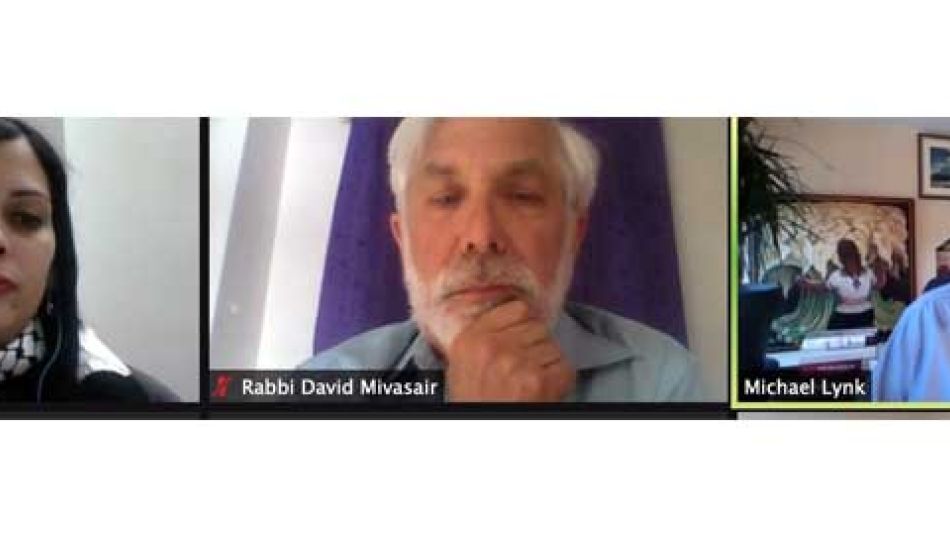
Share
Unifor members on a recent webinar heard harrowing stories about life in Gaza for Palestinians denied clean drinking water and facing delays in basic supplies, chronic shortages, unequal health care and a much-lower standard of living than Israelis.
“There are over two million Gazans, who live in a tiny fenced off area of land. It has been under a complete comprehended air, land and sea blockade by Israel for the past 14 years,” Western University law professor Michael Lynk told the webinar.
“Gazans have little access to drinkable water, aside from very expensive water.”
Lynk said that while Israelis enjoy a standard of living comparable to that in Europe or Canada, Palestinians earn on average about one-thirteenth what Israelis do and young Palestinians in Gaza face an unemployment rate of about 70 per cent.
The webinar was organized by Unifor for members only to explore the issues facing Palestinians living is Gaza and under Israeli occupation in other areas, and to let members know what they can do to help.
Unifor International Department Director Mohamad Alsadi opened the webinar by recognizing the addressing the tragedies in Canada in London and Kamloops.
“When we consider the events of this week in light of a rise of Islamophobia, and also in light of the news from Kamloops where 215 bodies of children were found, unmarked and undocumented, just a couple of weeks ago, we know that a country like ours has a lot of work to do to combat hate and to address white supremacy on which our country was built,” he said.
Ontario Regional Director Naureen Rizvi said she hoped the webinar could serve as a starting point for Unifor activists and local unions hoping to build solidarity with workers in Palestine.
“While Palestine, Gaza, the West Bank can seem really far away, our struggles are linked,” Rizvi said.
“As a social union, our own constitution is enshrined in social justice and mandates us to fund ways to end human right violations and conflict.”
Moderator Farah El-Hajj said the webinar was a chance for Unifor members could hear from experts on the issue, and those who have been active on Palestinian rights.
“We know that across the country, there are many trade union activists who have responded to the call from trade unions in Palestine for solidarity and support, and to that we are very grateful,” said El-Hajj, a leader in Windsor’s Palestine-Canadian community.
Palestinian union activist Majd Samaro said all imports to Gaza must come by road, leading to many delays and checkpoints, creating shortages and hardship.
“When you want to go from city to city, maybe a distance of 65 kilometres, you go through three zones, which means you will face two different laws – Palestinian laws and Israeli laws,” said Samaro, a project coordinator with the International Transport Workers’ Federation.
“In Palestine we have checkpoints. It’s not normal checkpoints. It means maybe many hours to pass through them,” she said.
Samaro thanked Unifor for a Social Justice Fund project that helps drivers as they are at the checkpoints with a place to wait, including clean toilets and shelters.
Rabbi David Mivasair rejected any notion that standing up for the rights on Palestinians is anti-Semitic. He moved to Israel as a young man. In the years he was there, he and could not help but see and be affected by the way Palestinians were being treated.
"That was very difficult. It took years and years to shift my own ideas," he said. “But I think more and more of us are doing that. It is kind of hard to avoid the reality of what Israel is doing to Palestinian people.”
Unifor donated $250,000 to Doctors Without Borders/ Médecins Sans Frontières (MSF) to respond to the immediate health, mental health, psychosocial and emergency response needs, and to carry out essential emergency interventions during the hostilities in Gaza.
Rizvi said members and locals can help Palestinians by:
- Reading and sharing Unifor’s statement
- Consider passing a resolution at your Executive Council or membership meeting
- Donate to Medecins sans frontieres or Project Hope in the Westbank
- Stay tuned for more information from Unifor


